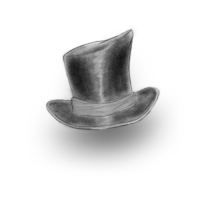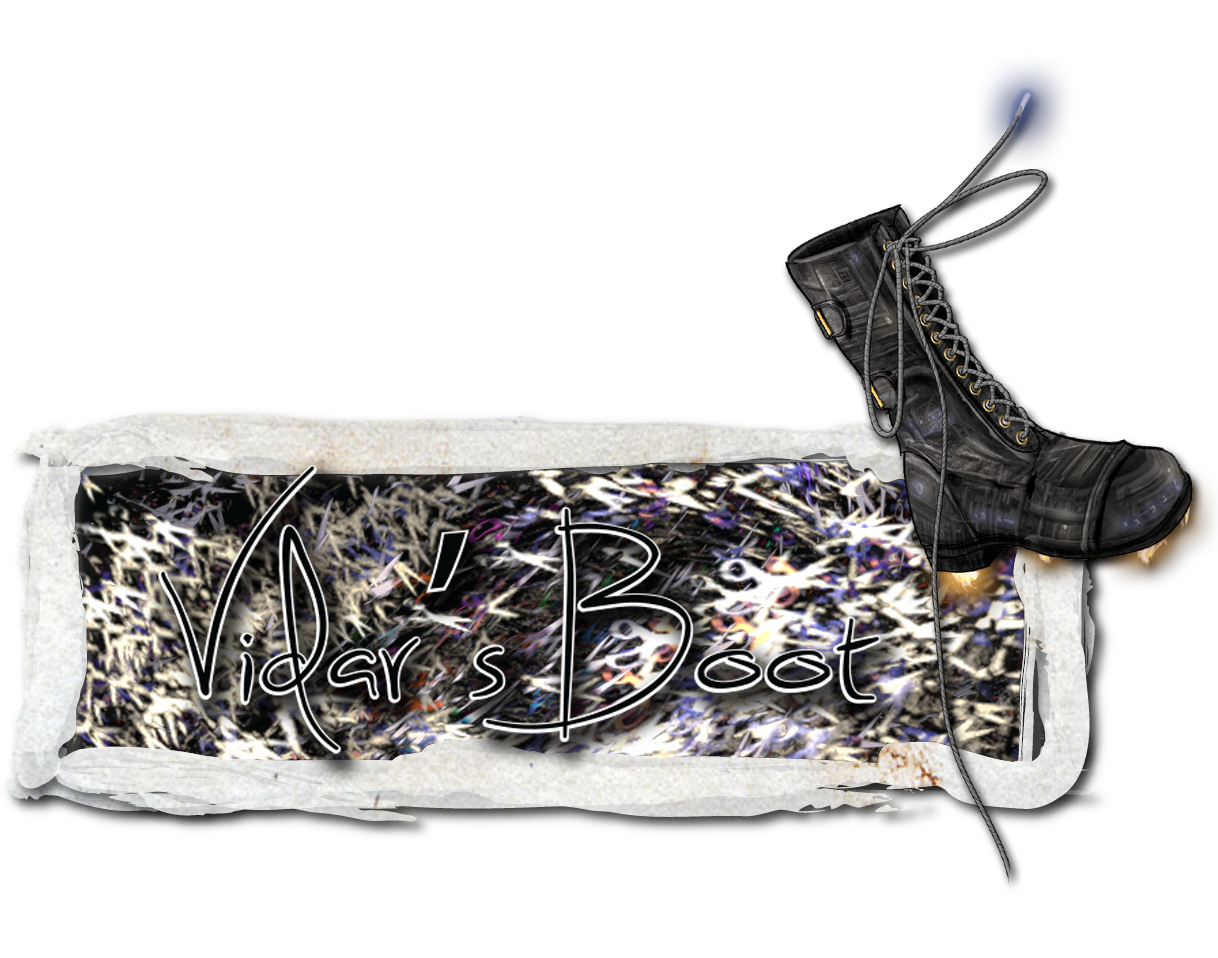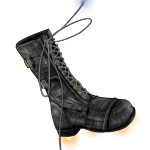– 3 –

Tom drags Saul back to his room.
He shows him the unfinished hammer shaft of science. (This isn’t any kind of euphemism. It’s the shaft of an unfinished hammer. Of science!
It smashes outcomes into the desired configuration.
The outcome-smashing part is actually easy. It’s explaining the desired part that’s hard!)
“May I?” asks Saul.
“If you can.”
Tom watches as Saul heaves at the shaft a few times. Result: failure!
“It’s heavy, ” Saul admits, with a sigh.
“I started thinking, ‘Tom, you’re just going to integrate it into the boot’s systems anyway, you might as well optimize it for a low-G environment.’ But now I can’t lift it at all. It is,” Tom says, and waves his hand in a Tom-wroth gesture, “an unfortunate circumstance; I shall have to construct some sort of hammer-lifting machine when I arrange for its transport up. Also it is very sharp.”
Tom pricks his finger with the tip of the unfinished hammer shaft of science, in demonstration. His finger starts bleeding.
That wasn’t the desired configuration at all!
“Well,” says Saul. “That is beside the point of why I have bumped into you accidentally in the halls.”
“That’s certainly true,” says Tom. “And the answer is no. I refuse. I will not do it. I will not re-hat you. Hatting you once was trouble enough already! I had to use my bees! Besides, there is no point. You are already one thing. You are already the one thing that you are. If wearing the hat again could change that, then I, who has worn it over and over again since the beginning, would already be crawling mutant chaos gibbering and drooling in the void. Or God! But certainly not still just Tom. Look at these human hands. They’re so warm-blooded! You disappoint me, Saul. Surely even a saint can count to two!”
“I was one thing,” says Saul, stubbornly, “but I might have changed to be another.”
“Ridiculous,” says Tom. “If you could change, then you wouldn’t be one thing. That is what it means to be one: to be perfect, and not imperfect. And only the imperfect can evolve. Scissors can evolve and become papers. Papers, into rocks. But we, we wear our hats and we are solitary and we are one thing and we are vast.”
Tom turns away.
He strokes the edge of his marvelous desktop computer monitor in sorrow.
“I liked your music,” he says. “You know. You disappointed me greatly. I still have not forgiven you for choosing to be a saint.”
“I did not choose,” says Saul. “And further, I’m not the same.”
“No?”
“I’ve learned from my experiences,” says Saul. “That which does not change, does not learn. That which does not learn, does not remember. If I were incapable of changing, then I would still believe it to be the night you gave me hat.”
“Ha! A glimmer of intellectual competence,” says Tom. “But, as so often happens, a little reason is a dangerous thing. Saul, you’re not changing.
“You’re a fixed point.
“You do not learn; you do not remember; you are one thing. Memory and learning move to you. The world shows you different faces; you show it different faces; this is as natural as light refracting differently through each of a crystal’s different sides.
“Consider your sainthood as like unto a perspective drawing made in chalk upon the roadway: look from here, it is a perfect image; look from there, it is a distorted and ugly design, but in every case it is the same pattern of chalk upon the road, unchanging, eternal, like a diamond, like the void. That is why I myself may not regret —”
Saul interrupts him with a raised hand.
“I accept it;” Saul says. “It is impossible.”
Tom’s shoulders settle. He looks down.
“I can only hope to blatantly grovel to your superior intellect,” says Saul; “and to pander to your hubris, and pray that you can make the impossible possible; that you can transcend reality with the power of the House of Dreams. That your genius, alone in all this world, can extract me from this inextricable sainthood into which I have made myself entangled.”
“Impossible,” says Tom.
His lower left eyelid twitches, though. He’s always wanted somebody to blatantly grovel to his superior intellect and pander to his hubris in hopes of making the impossible possible, and here it’s one of his ex-favorite musicians.
“It can’t be done,” says Tom. “If it were that easy then the Devil would be doing it to all the saints. If it were that easy then the world wouldn’t need anybody to do science, it would just all align itself like filings on a magnet into the perfect shape.”
Saul looks helplessly at Cheryl.
She considers.
“Nothing,” she concedes, finally, reluctantly, “is impossible for the House of Dreams.”
Tom’s mouth works.
“That’s true,” he says, softly, sadly. “It is not impossible for me. I am Thomas the First. But I mustn’t. I shouldn’t. The very idea is wrong.”
“Pander,” says Saul, attempting to provide a sound effect to an action he is not in any literal fashion performing. “Pander. Pander.”
Tom’s eyelid twitches more. Then he stretches his hands to the sky and gives a hissing, growling outburst-scream.
He spins on Saul. He glares at him.
He points. He lowers his hand. He sighs.
“I will do it,” he says. “You have pandered excessively, yet not so excessively as to disgust me. And you have recruited my sidekick —”
“Rival,” corrects Cheryl.
“Associate?”
Cheryl ponders this. It makes her uncomfortable. “Colleague,” she suggests.
“You have drawn my colleague into assisting you in this madness.”
“He’s hot,” Cheryl concedes.
“He is not ‘hot,’ Cheryl,” says Tom. “Good lord. Look at him.”
They look at him. After a while, Saul says, “I could take off my shirt?”
“Don’t be ridiculous,” snaps Tom. “She is too young. Our — her eyes are too delicate for such perversity.”
He turns away.
“At any rate,” he says, “I am pondering the matter. It seems that I must unfocus you. Set you to blurring. Divide you into a cloud of many forms.”
“Will it hurt?”
“Then,” says Tom, ignoring him, “while you concentrate on making yourself a creature of science — a Lethal student worthy of becoming an associate of my noble House — I will raise the hat above your head, like this!”
Tom poses, raising the hat above Saul’s head.
“You have a cap on under your hat,” says Saul.
“It is so that I may pose dramatically like this without feeling the discomfort of hatlessness,” Tom summarizes.
“I see.”
“And then I will lower the hat,” says Tom, putting his crowning hat back on, “etcetera.”
“Does the hat,” says Saul. “I mean, does the hat, the hat you have on underneath, is it, is it becoming one thing?”
“Hats are not sentient,” says Tom.
“And?”
“You shouldn’t anthropomorphize hats,” says Tom. “That way lies madness. They are not sentient. They are not beings. Therefore, they are one thing already.”
“That has disturbing implications,” says Saul.
“Yes,” concedes Tom. “The dead are one thing. The unliving are one thing. The Keepers are one thing. I am one thing. The implications throng! They haunt my dreams. But they are irrelevant under these circumstances. Stephan!” Tom snaps his fingers. “A crash of thunder, if you please.”
Tom’s roommate opens his mouth. A low boom of thunder rolls forth. He closes it.
“And now,” whispers Tom. “The dissolution.”
He pulls open a drawer, dramatically. Inside are pins. They are mostly dead pins. Some of them are various awards that Tom has accumulated, such as the pins for his various honor societies. Others are stolen, bought, or found. He sifts through them, piles a few of them together, and solders them into a single, greater pin.
“Lo,” he says.
He turns. He holds it out to Saul. Saul takes it, uncomfortably. It has become a single spear of gold.
“Put it on,” hints Tom.
Saul stares at it blankly. He cannot fathom how to put it on.
“It is a pin — oh, for the love of God,” Tom says.
Tom takes the pin back. He tries to clip it to Saul’s shirt. Saul finds himself stepping backwards. He is retreating. His movements are as elegant as a dancer’s. He isn’t even sure why. “What are you doing?” Saul says. His voice is tight, tense. “What is that? Where am I? Why doesn’t anybody enforce discipline at this school? I must not, Tom, this must not —”
“Stephan,” snaps Tom.
Stephan stands up. He grasps Saul’s arms from behind. He pins him. Saul struggles.
“Wait,” Saul says. “Wait. Let’s discuss this. We can negotiate. Please. I retract my consent. Stop, Tom. Please discuss this. I think I am going to hurl.”
“That is discus-ing,” Tom quarrels, and snaps the pin onto Saul’s shirt, right through the skin. Thunder booms to drown out Saul’s unfolding screams.
Tom raises up the hat.
He lowers it.
“It is done,” he says.
He turns away. He pushes the button on his belt that summons his crowning hat back onto him. He does not even watch as Stephan releases Saul, who falls.
“Get him out of here,” says Tom.
“He may be a member of Dreams,” argues Cheryl.
“He may also explode,” says Tom, “irradiating the surrounding countryside with efficacious spiritual toxins.”
“Hm,” Cheryl says. “That would be bad.”
She takes Saul’s wrists. She drags him out into the hall. She pushes him over to the window, folds the double-layered plexiglass out of the way into a Möbius twist, leans him out over the open frame, and she throws Saul down.
“Good luck!” she calls down after him.
He plunges into the rosebushes below.


